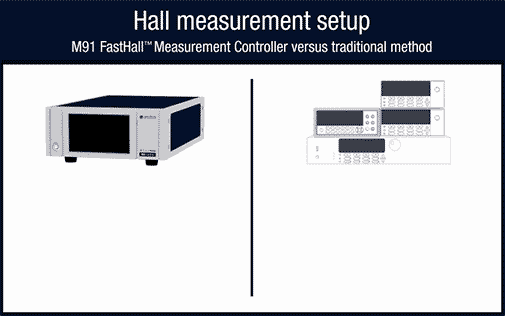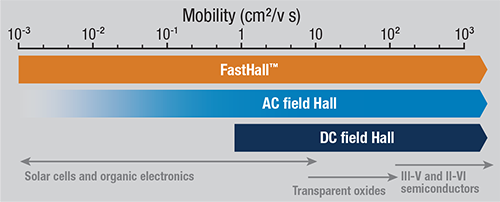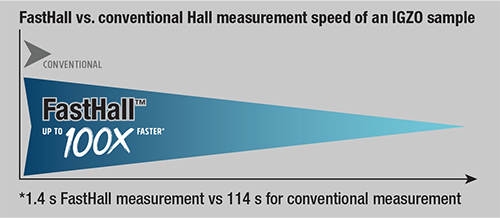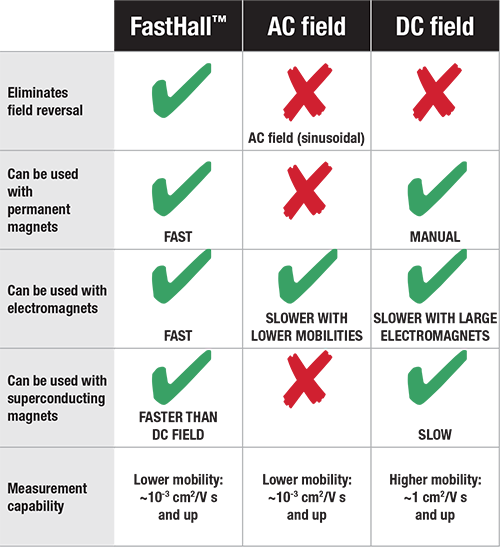Better measurements in less time

Lake Shore’s patented new FastHall technology eliminates the need to reverse the field, significantly reducing the time to make measurements without reducing measurement quality. In fact, a shorter measurement window lessens the opportunity for sample parameters to drift due to self-heating or ambient temperature change.
A unidirectional field also removes potential sources of measurement bias due field alignment errors, further improving the quality of the result.
With FastHall, any type of magnet can be used. For research platforms with high field superconducting magnets, the elimination of field reversal is especially beneficial.


Ideal for low mobility materials
Traditional DC field Hall effect measurement is relatively straightforward and reliable for simpler materials with higher mobilities. Measurement difficulty increases and accuracy decreases as carrier mobilities decrease. This is often the case in promising new semiconductor materials such as photovoltaics, thermoelectrics, and organics.
AC field techniques using advanced lock-in amplifiers and longer measurement windows can extract smaller Hall voltage signals and are commonly used today to explore low mobility materials. Extended measurement intervals can also add error from thermal drift effects and results take longer to get—sometimes many hours.
The FastHall technique eliminates both of these issues —
it precisely measures even extremely low mobility materials in seconds.

The DC field Hall effect process requires taking voltage measurements with the magnetic field set in one direction, followed by reversal of the field polarity and repetition of the voltage measurements. The type of magnet used and the number of measurement samples needed for satisfactory data impact the overall measurement time.
Comparison of HMS techniques

FastHall measurement requires Van der Pauw sample configurations (Hall bar configurations measured with DC field)
AC field measurement not currently supported in the M91— contact Lake Shore for more information








